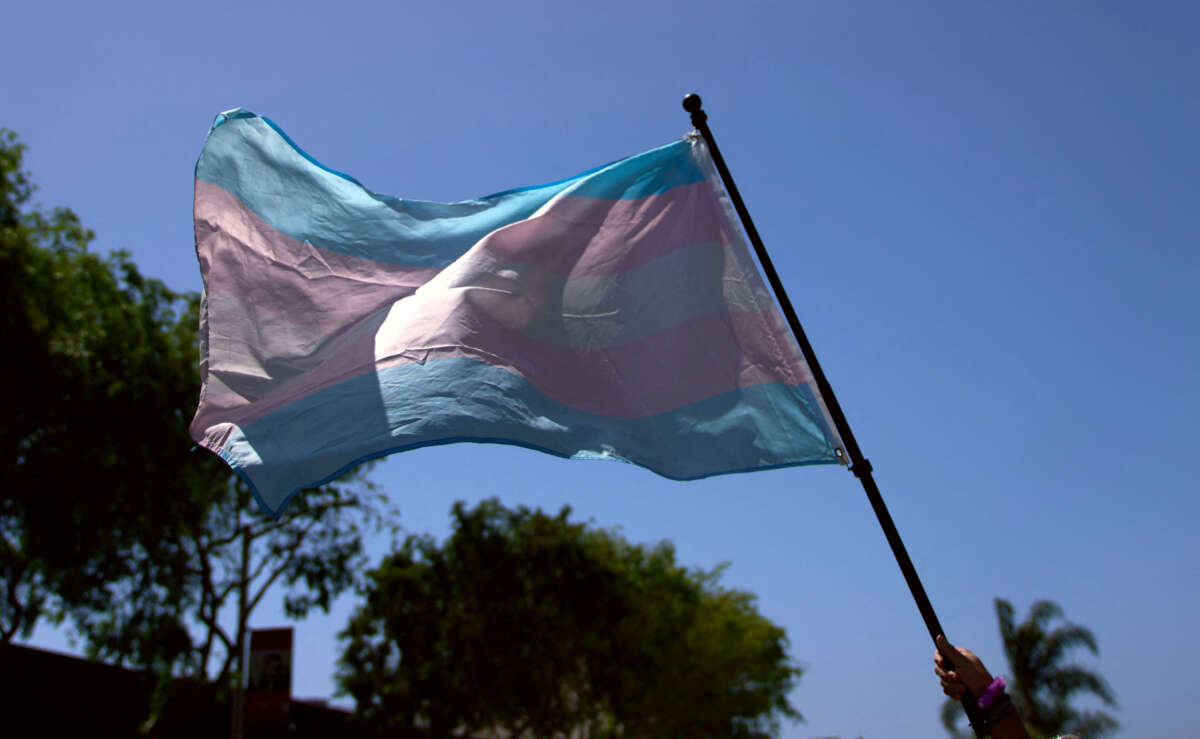South Carolina Republicans have introduced a slew of anti-transgender bills that would criminalize trans people from using public restrooms that match their gender identity, ban gender affirming care for trans youth, ban Medicaid coverage for gender affirming care for trans people under the age of 26, and ban “aiding and abetting” gender-affirming care.
“This is a significant escalation,” transgender activist Erin Reed said on social media. “These two bills are way beyond anything South Carolina has pushed forward so far, and they should be watched as potential upcoming model legislation.”
The first bill, HB4624, would ban gender affirming care for transgender youth and trans people on Medicaid younger than 26. This bill, which was referred to committee, would also force doctors to medically detransition trans youth already on gender affirming care.
The second bill, HB4619, is similar to the first but also targets “state and federal employees” as well as any person, even including those out-of-state, from “aiding and abetting” gender affirming care for transgender youth from South Carolina.
“It could be used to target anyone posting information about care,” Reed said.
Conservatives also introduced HB 4535, a criminal transgender bathroom ban that would ban trans people from using public restrooms that match their gender identity. If this bill is passed into law, South Carolina would join Florida as the second state to institute a criminal bathroom ban.
“We’ll likely see this bill in a dozen states this year,” Reed said. “It would significantly restrict trans people’s ability to travel and exist publicly.”
A few other states, says Reed, have transgender bathroom bans on the books that target K-12 students. Ohio is currently considering a bill that would target transgender college students and, in April, Kansas passed a noncriminal transgender bathroom ban.
“As a trans man, I read the anti-LGBTQ bills filed this session with anger and sadness. The ban on health care for transgender young people hits especially hard,” Jace Woodrum, the executive director of ACLU of South Carolina said in a statement in February. “Defeating these bills will require us to see them for what they are — unconstitutional attacks on all of us.”
According to Reed, South Carolina is at a high risk for anti-trans legislation. In the 2023 legislative session, the state introduced 20 anti-LGBTQ bills that targeted schools and education, healthcare, free speech and transgender people’s ability to change their identification to accurately reflect their gender identity.
This year, more than 500 anti-LGBTQ bills were introduced across the country, prompting the Human Rights Campaign (HRC) to issue a national state of emergency for LGBTQ+ Americans.
In tandem with these legislative attacks, transgender people are also facing an “epidemic of violence,” according to the HRC. An HRC report released on Monday, marking the Transgender Day of Remembrance, found that at least 33 transgender and gender-nonconforming people have been killed in the United States since November last year.
“The epidemic of violence against transgender and gender non-conforming people is a national embarrassment,” Kelley Robinson, president of the Human Rights Campaign Foundation said in the report. “As we once more honor our dead, we remember their hopes and dreams, and grieve the futures that were stolen from them. We must imagine a better future for transgender and gender non-conforming people — one where they are not just surviving, but truly living as free and equal members of our society.”
Join us in defending the truth before it’s too late
The future of independent journalism is uncertain, and the consequences of losing it are too grave to ignore. We have hours left to raise the $12,0000 still needed to ensure Truthout remains safe, strong, and free. Every dollar raised goes directly toward the costs of producing news you can trust.
Please give what you can — because by supporting us with a tax-deductible donation, you’re not just preserving a source of news, you’re helping to safeguard what’s left of our democracy.
